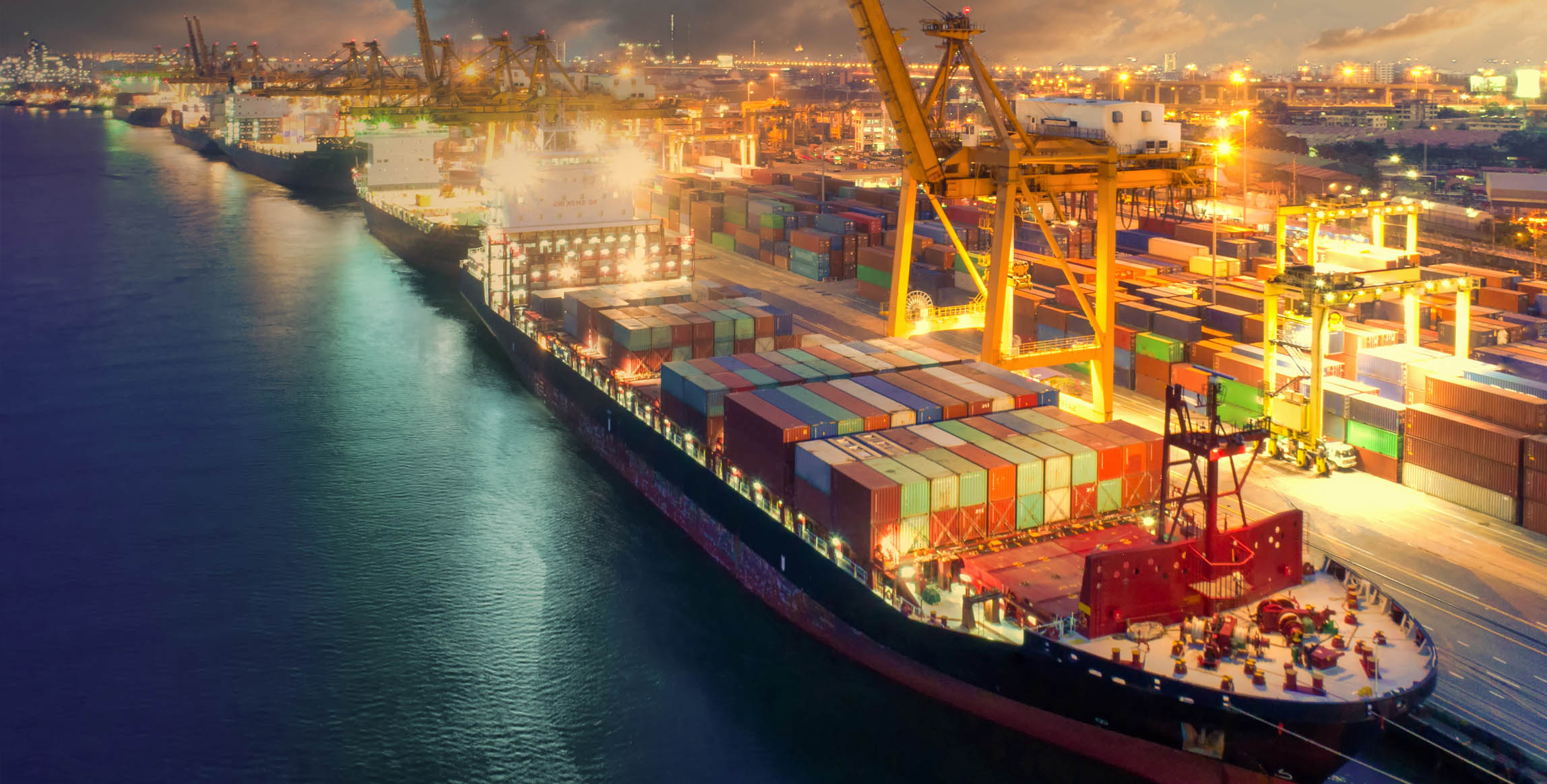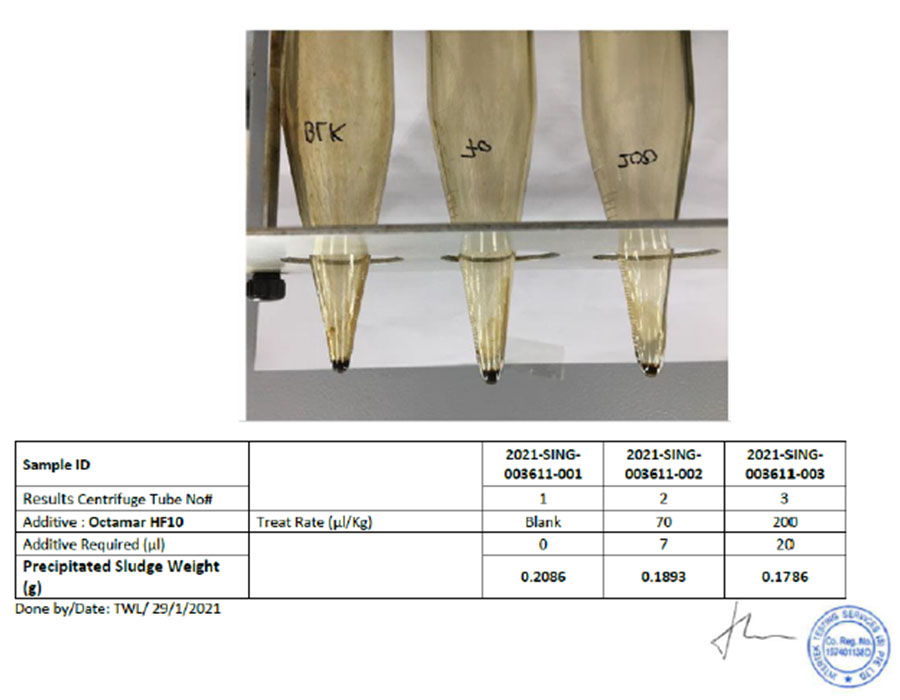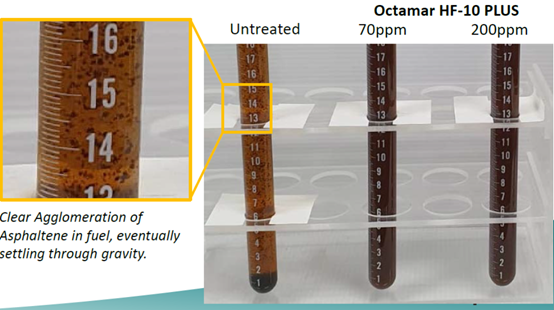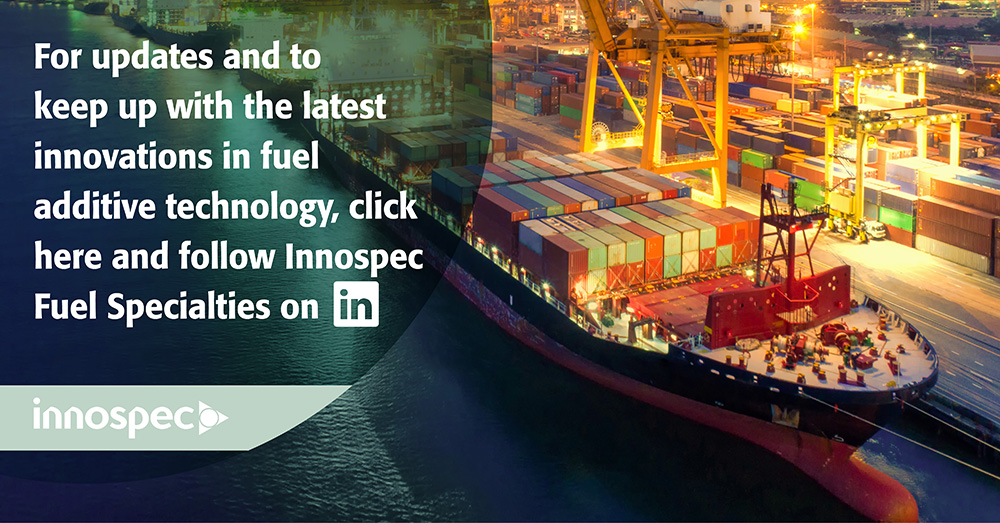
Innospec Octamar HF-10 Plus receives ClassNK certification for VLSFO stability performance

Marine fuel treatment chemical OctamarTM HF-10 Plus has received a Statement of Fact from Nippon Kaiji Kyokai (ClassNK) verifying its performance in maintaining Very Low Sulphur Fuel Oil (VLSFO) stability, learns Singapore bunkering publication Manifold Times.
Nicea Ng*, Marine Technical Specialist at Innospec, shared OctamarTM HF-10 Plus was subjected to stringent tests conducted at a third party lab by SGS Testing and Intertek in Singapore under the supervision of ClassNK earlier this year.
The tests conducted on OctamarTM HF-10 Plus were:
- Dispersion Method of Evaluation Marine Additives (the Japanese Shipowners’ Association (JSA Standard))
- Centrifugal Evaluation of Marine Additives (JSA Standard)
- Reserve Stability Number Evaluation of Marine Additives (ASTM D7061 – 17)
In short, the JSA test method for dispersion simulates the actual storage conditions of VLSFO in a ship’s bunker fuel tank, while the centrifuge test simulates sludge reduction after use of OctamarTM HF-10 Plus.
The Reserve Stability Number of the tested VLSFO notably reduced from 8.0 (unstable) to 0.2 (stable) after treatment.
“We used a 50:50 blend of two physically different ISO 8217:2017 on-spec VLSFOs to maximise the amount of incompatibility for all three tests verified by ClassNK,” said Ng.
She described the 50:50 blend of VLSFOs used in the JSA test method to be the “worst case scenario”.
“Mixing VLSFOs is not recommended in practice on-board, unless unavoidable. The objective of the tests is to proof the effectiveness of Innospec’s solution via independent third-party tests and verification,” explains Ng.
“With ClassNK’s verification, we have officially proved OctamarTM HF-10 Plus stabilises VLSFO bunker fuels and reduces issues such as filter clogging or excess sludge generation in purifiers in accordance to standards set by the Japanese Shipowners’ Association.
“Also, we have to be clear marine fuel treatment chemicals are much more effective when used during storage [before experiencing issues] and should not be thought of as a ‘cure’ [after experiencing a serious issue].
“This is because aging or oxidation stability of the fuel is irreversible.”

* Nicea Ng, Marine Technical Specialist at Innospec, is a Marine Engineer with eight years of seagoing experience with CMA CGM and APL. She holds a Certificate of Competency (CoC) Class 1 Marine Engineer Officer license from the Maritime Port Authority of Singapore (MPA).
Reproduced with kind permission from Manifold Times. First published 12th May 2021.

